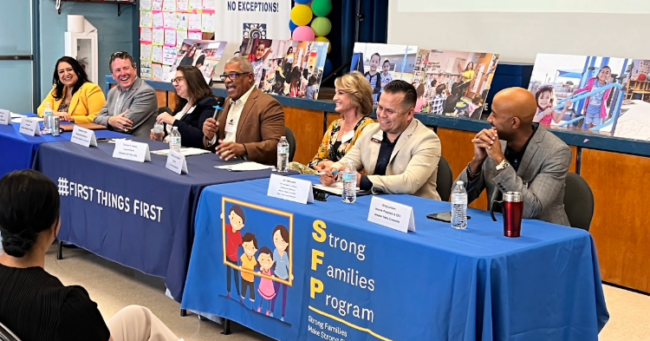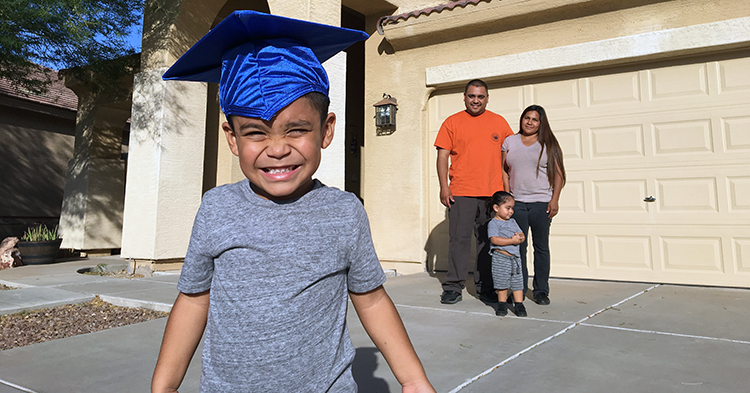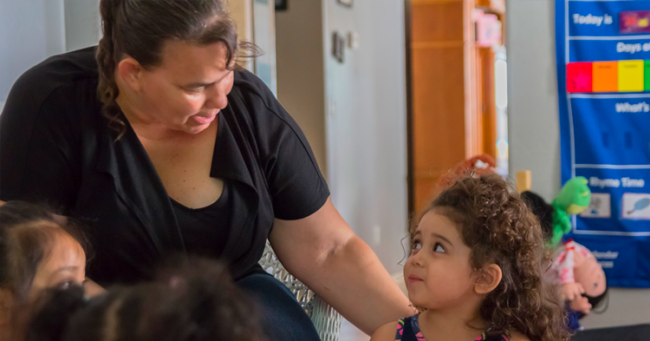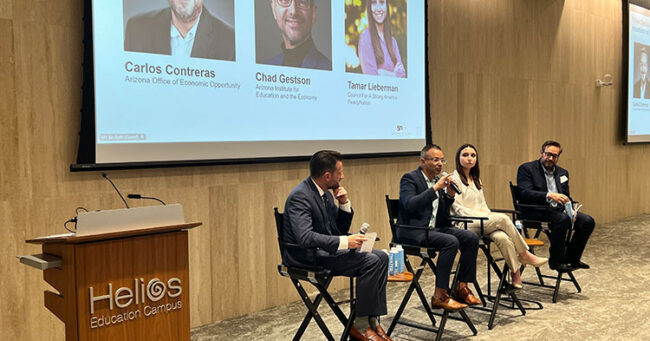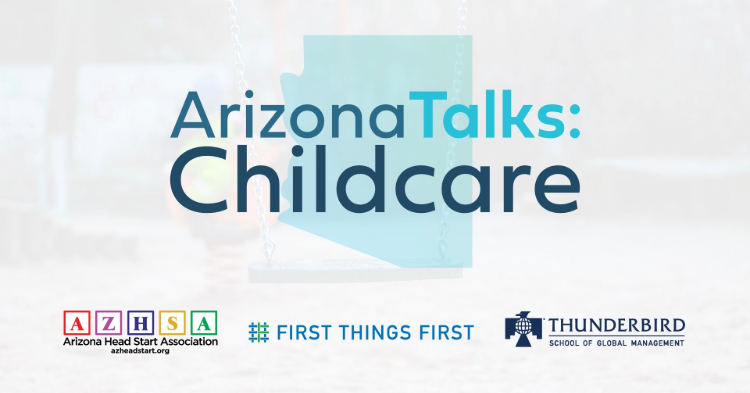
The United States is in the middle of a child care crisis and Arizona is no different. Not being able to find or afford quality child care is a growing problem for working parents.
Did you know that it’s also a problem for businesses? In Arizona on average, employers lose $958 million a year due to employee absences and turnover related to child care issues, according to a study funded by the Helios Education Foundation. The study commissioned a survey of working parents of children birth to age 5 in Arizona.
As Arizona’s early childhood agency, First Things First (FTF) has been working throughout the state to raise awareness of the critical importance of investing in quality early learning.
FTF CEO Melinda Morrison Gulick, along with ASU professor Chris Herbst, Arizona Chamber of Commerce & Industry‘s Director of Policy and Government Affairs Grace Appelbe and U.S. Rep. Juan Ciscomani will be part of a panel discussion on Sept. 5 as part of Arizona Talks, which provides a platform for dialogue and connection to Arizona’s top public policy perspectives.
Herbst’s research focuses on the economics of child care and early childhood education. His work includes the study of the impact of policy on the well-being of children and parents. Child care costs have grown twice as fast as overall inflation since the 1990s. Parents spend about 12-32% of their income on child care, when just 7% is considered affordable.
Ciscomani recently introduced the Headway Act, which aims to address staff shortages at child care centers to ensure that families have access to affordable, quality education for their children. With 22 federal Head Start programs operating at 500 locations across Arizona, Head Start services are crucial for the well-being of the state’s families and children. However, many families struggle to access these services due to the shortage of child care workers.
Child care crisis costs Arizona billions
The Helios Education Foundation survey found that a lack of accessible and affordable child care can wreak havoc on parents’ work lives. More than half of parents report being late for work, leaving work early or being distracted at work due to child care problems. Nearly two-thirds reported missing a full day of work, while 28% of parents have quit a job due to child care problems. These impacts to employees also impact business and their bottom line.
Ensuring babies, toddlers and preschoolers get a strong start and supporting working families is the key to our state’s success, because Arizona’s child care crisis costs the state $4.7 billion annually in lost earnings, productivity and revenue. Broken down:
- Arizona employers lose $958 million annually due to absences and turnover.
- The state loses $725 million annually in tax revenue.
- Families lose $3 billion annually in lost earnings and job search expenses.
It’s important that all Arizonans understand that investing in quality child care is investing in our future. Our state’s economic development starts with early childhood development.
Working parents are a critical part of the U.S. labor supply: about 11% of workers in the US have a young child under age 5 at home. In Arizona that works out to about 474,000 working parents with children under age 6. And 60% of young children live in households where all adults work, which means many of them may need child care.
But demand far exceeds supply, a recent study by the Bipartisan Policy Center showed that in our state, about 304,000 young children may need child care, but only 230,000 child care openings exist.
Earlier this year, Danny Seiden, President and CEO of the Arizona Chamber of Commerce and Industry called on businesses to recognize the importance of solving the child care crisis to Arizona’s economic development.
“The ability to recruit and retain top talent is more important than ever and child care is key to solving many of the workforce challenges that Arizona businesses face,” Seiden said at a Child Care Forum that First Things First hosted in partnership with the Chamber.
Arizona currently has 160,000 open jobs and child care is a factor and sometimes a barrier to getting those jobs filled by working parents.
Child care is a barrier for working parents
Along with affordability and accessibility, working families also need reliable child care and their children need high-quality care so that we can prepare our next generation of the workforce. Every child – regardless of where they live or their family’s income or who is caring for them – deserves great care that sets them up for success.
Businesses across the nation recognize that quality child care matters for recruitment and retention. Pilot programs in many states – including Kentucky, Michigan, Iowa and North Carolina – are showing partnerships between government/private companies and working families can work to make child care more affordable. For example, Kentucky passed legislation for a state match to employer child care subsidies for employees.
Quality child care ensures that parents can work, that children can learn and that Arizona’s businesses and economy can thrive. It’s important that everyone – businesses, policymakers and advocates – look for long-term solutions to our state’s child care crisis. Events like the September 5 Arizona Talks event are one step in that direction.



